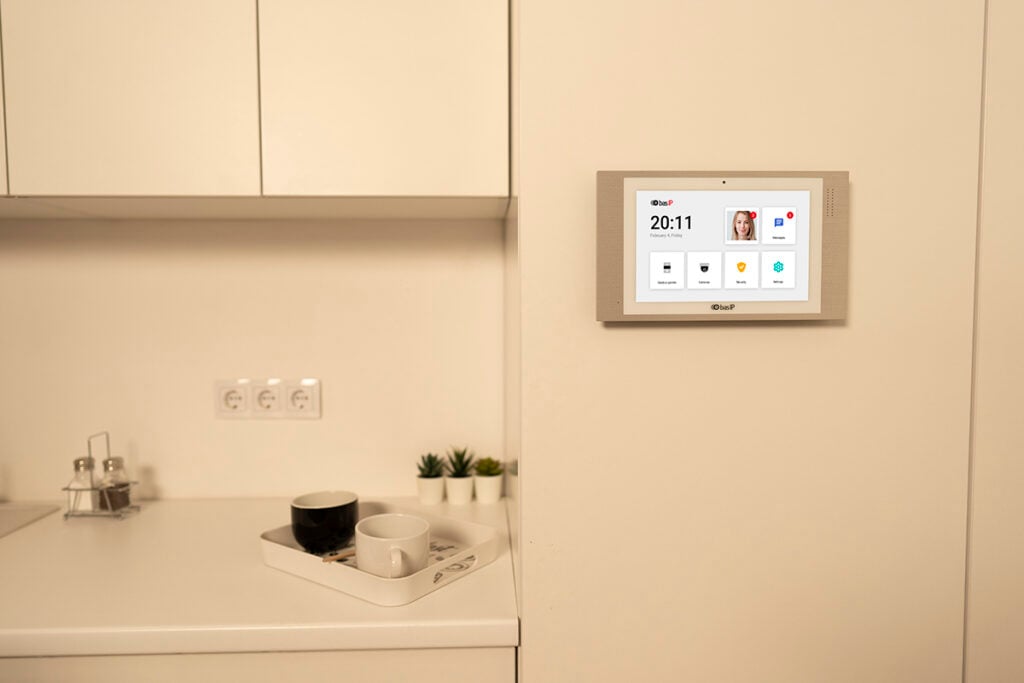What is Intercom? Unveiling the Power of Advanced Communication Systems

What is Intercom: A Comprehensive Overview
Intercom, short for intercommunication device, is a standalone communication system employed within a building or a collection of buildings. It’s designed to enable different rooms or sections to communicate with each other effectively. Over the years, the intercom system’s functionality has grown significantly, integrating more advanced features such as video and network capabilities.
Fact: The concept of the intercom, surprisingly, dates back to the late 19th century. The invention of the telephone by Alexander Graham Bell in 1876 paved the way for the development of the intercom. The first intercom systems were developed and used by the telephone exchange operators in the late 1890s. These systems were used to connect different operator stations to manage calls more effectively. However, the intercom as we know it today, designed for use in homes and offices, didn’t become common until the mid-20th century.
Table 1: Evolution of Intercom Systems
| Era | Type of Intercom System | Key Features |
|---|---|---|
| Early 20th Century | Audio-only Intercoms | Allowed simple voice communications |
| Mid 20th Century | Video Intercoms | Integrated video functionality |
| Late 20th Century | Networked Intercoms | Enabled interconnection of multiple systems |
| 21st Century | Smart Intercoms | Introduced internet connectivity, mobile app control, and more |
What Is Intercom System? Is There a Difference?
The terms “intercom” and “intercom system” are often used interchangeably, and in most contexts, they mean the same thing. Both refer to a communication system that allows for a two-way conversation between people in different rooms or areas of a building.

However, if we were to distinguish between the two, “intercom” could refer to a single communication device or unit, while an “intercom system” might imply a network of intercom devices spread across a building or set of buildings. In this sense, an intercom system would consist of multiple intercom units.
For instance, in a large office building, each individual office or room might have its own intercom device. All of these devices would then be connected to each other, forming an intercom system.
But in everyday language, both terms are often used to refer to the same concept, and the distinction, if any, is usually minor and context-dependent.
Understanding Different Types of Intercom Systems
There are various types of intercom systems available today, each with unique features and benefits. Let’s delve into the most common types.
Wired Intercom Systems
Wired intercom systems are the oldest type of intercoms. They are reliable and often offer high-quality audio communication. However, their installation can be labor-intensive as it involves running wires between intercom stations.
Wireless Intercom Systems
Wireless intercom systems are more flexible and easier to install than their wired counterparts. They use radio frequencies or digital signals to facilitate communication between devices. Their only downside is that they may suffer interference from other wireless devices.
The Role of Intercom Systems in Modern Life

Intercom systems play an integral role in various sectors today, from residential to commercial and industrial establishments. They enhance security, improve convenience, and boost operational efficiency in different settings.
Enhancing Security
One of the most critical roles of intercom systems in modern life revolves around security. These devices provide an additional layer of protection to residential and commercial establishments by facilitating controlled access. For example, video intercom systems allow individuals inside a building to visually confirm the identity of a person at the door before granting them access. This precaution significantly reduces the risk of unauthorized entry, contributing to the overall safety of the premises.
Improving Convenience
Intercom systems have also introduced an unparalleled level of convenience to our day-to-day communication. In large buildings or complexes, it can be time-consuming and physically taxing to move from one end to the other just to deliver a message. Intercom systems eliminate this hassle by providing instant communication channels. This is particularly beneficial in settings such as schools, hospitals, and large offices, where swift communication can be vital.
Boosting Operational Efficiency
In the commercial and industrial sectors, intercom systems are more than just communication tools; they’re drivers of operational efficiency. They enable seamless coordination between different departments, ensuring that everyone is on the same page. In emergencies, intercom systems can be used to relay critical information quickly, potentially saving time, resources, and lives.
Integrating with Smart Technology
The advent of smart technology has further expanded the role of intercom systems in our lives. Many modern systems can now integrate with smart home platforms (like Control4), allowing users to control their intercom devices using smartphones or voice commands. This advancement has not only increased the functionality of intercom systems but also their ease of use.
Facilitating Remote Communication
In the age of remote work and social distancing, intercom systems have proven to be incredibly valuable. They allow for safe and effective communication between people in different locations within a building, reducing the need for physical contact. Moreover, some advanced intercom systems enable remote monitoring and communication from outside the premises, providing peace of mind for homeowners and business managers alike.
Frequently Asked Questions (FAQs)
Conclusion
Understanding what an intercom is and its role in our lives is key to appreciating the power of communication technology. As we continue to embrace digital transformation, the role of intercom systems will only become more significant, enhancing connectivity, safety, and efficiency in various spaces. Remember, the right intercom system can revolutionize how you connect, both in your personal life and professional settings.